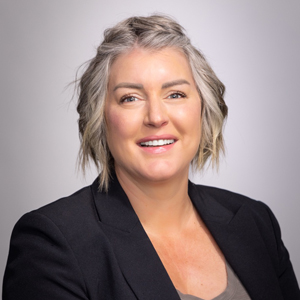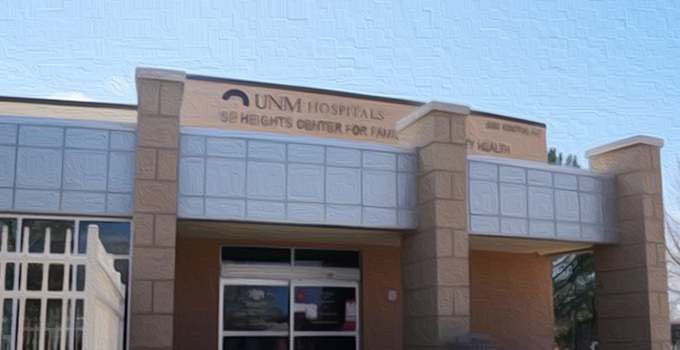With anti-transgender legislation mounting across the country, University of New Mexico Health clinicians have expressed interest in expanding access to gender-affirming care for transgender New Mexicans.
Molly McClain, MD, MPH, leads Deseo, a clinic run out of the UNM Southeast Heights Family Health Clinic. There, she treats young transgender patients who experience gender dysphoria, which is discomfort or distress caused when a person’s gender identity differs from their sex assigned at birth.
“I think gender care should be part of primary care,” said McClain, who is also an assistant professor and the residency program director in the Department of Family & Community Medicine. “Every primary care doctor that you go to should be skilled with the ability to provide the medical therapies that are part of some peoples’ journey on their gender trajectory.”
Deseo, meaning “wish” in Spanish, offers two gender-affirming care options to transgender people who experience gender dysphoria.
The first involves a prescription pubertal blockade medication that suppresses the production of estrogen or testosterone in younger patients, often teenagers. Puberty suppression medication is reversible but can come with a few side effects, McClain said.
“When some kids start seeing that their bodies are changing, they get really anxious, depressed and often suicidal – we see a lot of self-harm,” McClain said. “So, to be able to put those changes on hold and let the family and kid take a breath without having to worry about that is just amazing.”
The other option for gender-affirming care is hormone therapy. This option is available for older teenagers and adults.
“If folks have gone on puberty on their own to a certain degree, a more appropriate intervention would be to start their accurate puberty,” McClain said, describing hormone therapy.
Language is another way in which clinicians can provide a safe space for gender-expansive patients, McClain said.
“Affirming care, as far as asking peoples’ names and pronouns and using them, is suicide prevention,” she said.
A recent University of Washington study showed that access to gender-affirming care reduces suicidality among transgender youth by 73%, and major depression by 60%.
“The data shows that exclusion is very harmful,” McClain said, “and inclusion is very powerful and protective.”
McClain added oftentimes gender-affirming care can be a supportive opportunity for the whole family.

As a medical professional, I let parents [of transgender youth] know that their feelings and concerns are being heard. I have seen parents’ shoulders drop and sighs of relief and tears because they know they don’t know longer have to feel ashamed or scared.
In a recent nationwide trend, several states have passed bans on gender-affirming care for transgender youth. The bills also often include criminalizing clinicians if they provide puberty blockers, hormone treatment or gender-affirming surgery to transgender individuals under 18. Some bills are now aiming to strip away, restrict and criminalize gender-affirming care for adults, by increasing the age from 18 to 21 or 26.
Health experts have said most anti-trans state bills are based on scientifically inaccurate information.
“We have these patients who are struggling with their identity, and on top of that, they’re seeing these strong, powerful people in the country who don’t want them to exist,” McClain said. “I can’t even imagine how impactful that would be.”
Since the legislative session this year, Gov. Michelle Lujan Grisham has signed multiple bills into law protecting gender-affirming health care and expanding protections for LGBTQ New Mexicans.
On March 16, Grisham signed into law House Bill 7, the Reproductive and Gender-Affirming Health Care Act, which prohibits public bodies, including local municipalities, from “denying, restricting or discriminating against an individual’s right to use or refuse reproductive health care or health care related to gender.”
“I feel so proud to be in New Mexico,” McClain said. “To be in a refuge state means a lot.”
McClain said that while the protections are a step in the right direction, there are still many transgender people in New Mexico, particularly in rural areas, who do not have access to gender-affirming care. She added that she’s working with Project ECHO to create a gender-affirming care program to help ease those barriers to care. “The New Mexico Department of Health is working a lot on expanding the network of care for abortion providers,” McClain said. “I’m hoping I’ll be a part of a larger push to expand that care to transgender services.”
